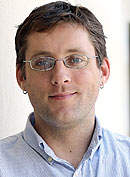The Center for Values in Medicine, Science, and Technology in the School of Arts & Humanities has been awarded a grant for $299,969 by the National Science Foundation for a project on “Engineering Ethics as an Expert Guided and Socially Situated Activity.” The grant will support research by philosophy professor and Director of the Center for Values in Medicine, Science, and Technology, Dr. Matthew J. Brown, along with his collaborators on the project, Dr. Nicholas Gans, professor of electrical engineering, and Dr. Magdalena Grohman, Associate Director of the Center for Values. Their project is to study ethical decision making in research teams of engineering undergraduate and graduate students. The major goal of the study is to improve ethics education for engineering students and, ultimately, ethical practice among professional engineers.
The investigators on this project took their lead from the “Code of Ethics for Engineers” of the National Society of Professional Engineers, which states that members shall “Perform services only in their area of competence.” Mechanical engineers know to consult an expert when their project requires the competence of an electrical engineer, but will they think to consult an ethical expert when making decisions with risks of harm or about their duties and obligations? The central intervention that Dr. Brown and his team will study is the presence of “ethics experts” on research and design teams, looking to see whether these experts act as effective resources to improve ethical decision making. This also models the professional situation of most engineers, who have access to an ethics office, ombudsperson, or office of corporate responsibility.
The National Science Foundation (NSF) is an independent federal agency created by Congress in 1950 “to promote the progress of science; to advance the national health, prosperity, and welfare; to secure the national defense…” The Center for Values in Medicine, Science, and Technology received this grant through the Ethics Education in Science and Engineering program, which funds research and educational projects that improve ethics education in all fields of science and engineering that NSF supports. The team of investigators will approach this question from multiple perspectives: practical ethics, moral psychology, and situated learning, as well as qualitative observational research that includes experimental studies of ethical decision making in group projects.


